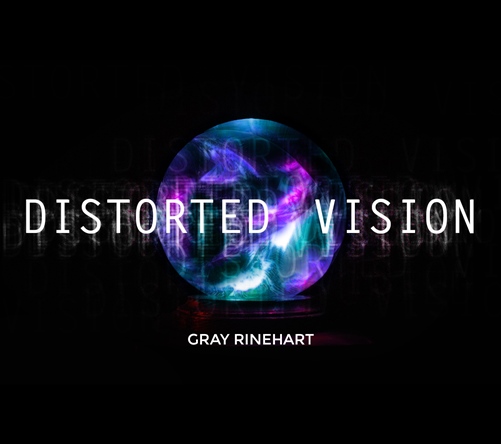This has been fermenting in my mind for some time now. Some folks may think I let it go too far, and have produced figurative vinegar instead of wine. But, vinegar also has it uses.

(Some straw men are more active than others. [Image: “Straw Man Walking” by Ken Bosma, on Flickr under Creative Commons.])
I thought I’d take a stab at why it is not just unlikely that we will ever agree on many issues, but very nearly impossible. I hope you’ll bear with me and forgive any errors I may make.
First, some symbolic language:
- Let X be a topic upon which we differ. Either you support it and I oppose it, or vice versa.
- Let A then be some factor related to X which one of us perceives as unfavorable. The other may perceive it as favorable, or may allow that it is not precisely favorable but is also not completely negative.
Now the fun begins.
One of us formulates an argument along the lines of, “I oppose X because of A.” Perhaps we state it just that clearly, or perhaps the unfavorable A is only implied.
The other of us formulates a counter-argument along the lines of, “I support X despite A.” (Or, if we think that A is actually favorable, we might argue, “I support X because of A.”)
(Note that this is different from arguing on one side “I support X because of A,” and on the other side “I oppose X because of B.” There, we are not arguing quite the same cases. Maybe there’s another blog post in that discussion, but I doubt it.)
This “I oppose/support X because of/despite A” type of formulation works for many different arguments, even if we choose to add conditions meant to make our positions complete or more “reasonable.” The more caveats and addenda we add, the more complicated we make our arguments. “I support X, under conditions Y and Z, because of A and B, and despite C.” We might wonder whether the additional conditions are intended to convince our opponents, or ourselves.
(Also, the respective arguments need not be stated in terms of outright support for a particular position. For instance, we could say, “I think X works well despite A,” or “I think X works poorly because of A.”)
With that as a symbolic basis, here’s the crux of why I doubt we will ever agree: Once we have established our relative positions, and do not take the time or make the effort to examine our differing assumptions and premises, neither argument is particularly convincing. As the poem goes, “ne’er the twain shall meet.”
Shall we consider a few examples?
Abortion:
- “I object to abortion on demand despite a woman having the right to subject her body to whatever procedure she chooses, and because of the effect such a procedure would have on a potential human life growing inside her.”
- “I support abortion on demand because a woman has the right to subject her body to whatever procedure she chooses, and despite the effect such a procedure would have on a potential human life growing inside of her.”
Gun control:
- “I support the private ownership of firearms by United States citizens because that right is enshrined in the Second Amendment, and because citizens have the right to defend their lives and property, and despite the terrible and regrettable damage done by lawbreakers using firearms.”
- “I oppose the private ownership of firearms by United States citizens because of the terrible and regrettable damage done by lawbreakers using firearms, and despite that right being enshrined in the Second Amendment, and despite citizens having the right to defend their lives and property.”
Socialized healthcare:
- “I oppose socialized healthcare because of the limits it must impose on accessibility and care in order to approach financial viability, and despite the numbers of people who are unable to obtain insurance or care on the open market.”
- “I support socialized healthcare because of the numbers of people who are unable to obtain insurance or care on the open market, and despite the limits it must impose on accessibility and care in order to approach financial viability.”
(Note that both sides in this case could use reports of people who fall through the metaphorical cracks of either socialized or open-market healthcare systems as “because of” or “despite” factors — because no system of healthcare will ever be perfect.)
The dichotomous arguments can be applied to belief systems as well: “I believe in X because of A,” or “I am skeptical about or do not believe in X despite A.” Perhaps a single example will suffice: Religion.
- “I have faith in my chosen religion because of the positive effects I have seen in my life and the lives of others, despite the difficulty of squaring all of its tenets with the objective reality of the world around me, and despite the regrettable and sometimes reprehensible things that have been said and done by some of its adherents.”
- “I have no faith in your (or perhaps any) religion because of the difficulty of squaring its tenets with the objective reality of the world around me, and because of the regrettable and reprehensible things that have been said and done by some of its adherents, and despite the positive effects that you and others have experienced.”
Feel free to formulate your own versions of the above, or your own sets of arguments on both sides of whatever controversies you choose: anthropogenic climate change (formerly known as global warming), the death penalty, debt financing, Keynesian economics, whatever you wish. Post them below, if you like. You may find that it can be difficult, but interesting, to formulate an opposing argument.
Here’s one sure to make people’s eyes water: Societal acceptance, if not normalization, of marriage between homosexuals.
- “I support limiting the special status of the marriage relationship to men with women, because throughout history and across cultures, even in societies where homosexual relationships have been tolerated or even accepted, the marriage covenant has been limited to men with women; because the ‘norms’ of a society should derive from the majority of the society, and the majority of society is and is likely to remain heterosexual; because homosexual relationships are not a plausible categorical imperative for all of society; because economic and social partnership benefits can be extended to long-term homosexual relationships without conferring on them the special status of marriage; and despite the growing tolerance or even acceptance of openly homosexual behavior in society at large.”
- “I support extending the special status of the marriage relationship to homosexual unions because of the growing tolerance and even acceptance of openly homosexual behavior in society at large, and despite any objections anyone might raise, and despite any economic or social accommodations that might be offered short of full recognition of marriages between homosexuals.”
I will forego other examples, because this post was already unwieldy enough even before that last controversy. If you’ve made it this far, thank you for your forbearance. Please permit me one last observation.
If these formulations just ended in disagreement, all would be well: you think what you think, I think what I think, and we agree to get along regardless. It gets worse if disagreement results in attempts to silence the other side. But this type of thinking becomes even more of a problem when we direct our argument away from ourselves and what we think is right and toward each other: “You should support/accept/believe in X because of A and despite B.” Left out, but at least somewhat implied, is “because I do,” which at times seems to mean “because I am an intelligent, right-thinking person and believe all intelligent, right-thinking people should support/accept/believe in the things I support/accept/believe in, and therefore if you support/accept/believe in the things I do then I will recognize you as intelligent and right-thinking, too.”
Better, in my opinion, just to disagree.
In closing, Scripture says, “Come, let us reason together.” It does not say, “Come, let us always agree.” We need to be able to handle the disagreement; not, perhaps, ever to like it, but at least to tolerate it. If you can handle the disagreement and I can handle the disagreement, maybe we can move forward together — even if we don’t necessarily want to go in the same direction.



 by
by 

















